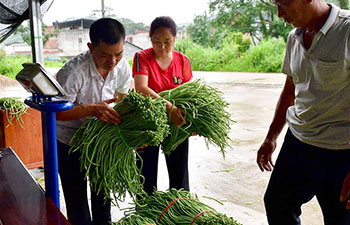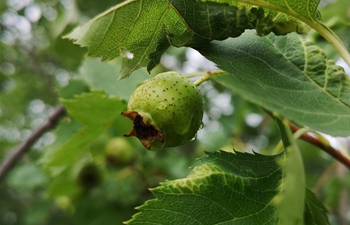WASHINGTON, July 10 (Xinhua) -- Scientists in the United States found that a kind of stress could trigger a response that promotes longevity in cells.
The study published on Wednesday in the journal Science Advances showed that moderate chromatin stress could set off a stress response in yeast and a roundworm that may lead to longer life. Chromatin is the substance of a cell nucleus consisting of DNA and RNA and various proteins.
The findings revealed that the longevity mediation mechanism may also be found in other organisms, opening the possibility of new ways to intervene in human aging.
Chromatin stress refers to disruptions in the way DNA is packed within the nucleus of the cell around proteins called histones. In case of chromatin stress, disruption of the chromatin structure can lead to unwanted changes in gene expression, according to the study.
In the new study, a group of scientists led by Dang Weiwei, assistant professor of molecular and human genetics at Baylor College of Medicine, genetically engineered yeast to carry fewer copies of certain histone genes than normal yeast.
Unexpectedly, the yeast with fewer copies of histone genes lives longer than the normal ones, according to Dang.
Yeast with a moderately low dose of histone genes showed a moderate reduction of histone gene expression and significant chromatin stress. In response to the disruption, the yeast activates a number of genes that eventually promote longevity.
Dang's team previously found that chromatin structure gradually falls apart in aging cells, with the histone levels decreased. But when the age-related protein decrease is compensated by overexpression of certain histone genes, the lifespan yeast cells extends.
A moderate reduction of histone dosage in cells can trigger a response that benefits the organism, according to the researchers.
They identified this kind of chromatin stress in other organisms like the laboratory worm C. elegans and mouse embryonic stem cells. In C. elegans, the chromatin stress also promotes longevity.
The researchers are working to find if the longevity-linked chromatin stress occurred in human cells.

















